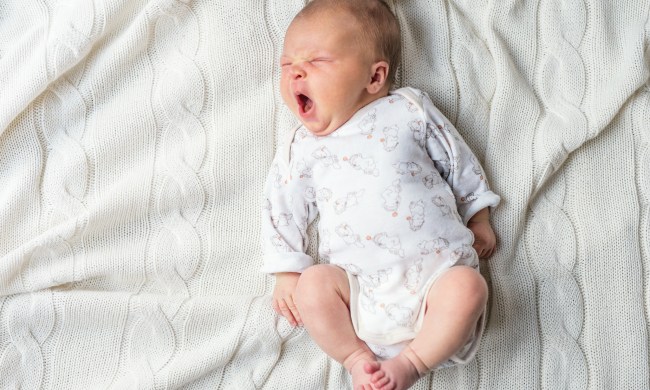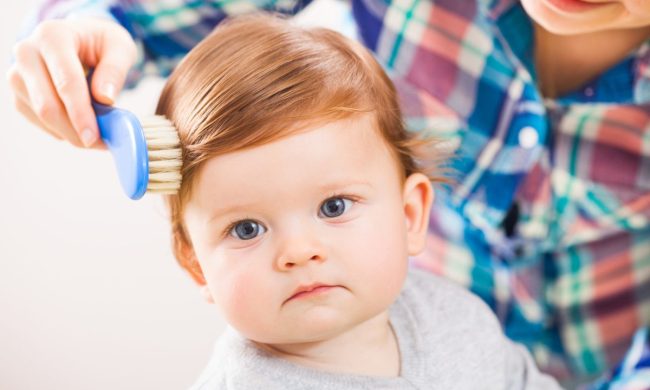Toddler diapering isn’t for the faint of heart. If your toddler squirms and wiggles and even kicks and screams, you’re not alone. Thankfully, there are some techniques to help you change a toddler’s diaper with less stress for both of you.
While it’s natural for toddlers not to want to lie still for even a minute, you also have a job to do and you have to be able to get it done without getting everything messy or wanting to pull your hair out. We’ve compiled five strategies for how to change a toddler’s diaper without the wiggles and struggles.

Toddler diapering
Here are five top tips for how to change a toddler’s diaper when they won’t stop squirming.
Sing a song
Just like you redirect away from any other behavior you don’t want your toddler doing, distraction is the name of the game here, too. The Wheels on the Bus or the ABCs are good standbys. Also, make sure you add engaging facial expressions as you sing. Getting your toddler to pay attention to your face and your song instead of the diaper change is the important thing here, so be as silly as possible. This isn’t time for a lullaby; it’s the moment to ham it up! You can also establish a special diaper-changing song you sing every time that they sing with you.
Install a mobile
A toddler may be too advanced to be distracted by a dangling paper crane that cut it for an infant, but you do have some leveled-up options. You could hang a toy by tying a string around it from a hook on the ceiling so every time your toddler goes on the changing table it is there to play with. The advantage of doing this instead of handing your toddler a toy is that she can’t throw it on the ground, or, even worse, into the open diaper being changed. If you don’t want to hang something all the way from the ceiling, you could also fasten a toy to the wall. Choose a smooth plastic toy like a rattle you can clean and disinfect instead of something like a stuffed animal.
You could also install a light mobile that projects moving and changing multi-color images onto the ceiling or the wall next to your child, and plays music as well. Again, it’s all about distraction.
Check for irritation
Your toddler might be bored having to stay still for a minute, but he also might be trying to wiggle away because the wipes hurt. Take a closer look inside all of his skin creases for diaper rash and for older toddlers, ask if the diaper change hurts. You may want to use some cream if you stopped after babyhood and possibly look into using more gentle wipes.
Your toddler also might be showing you her readiness for potty training every time she fights against putting on a new diaper. Let her win the struggle and give her some diaper-free time at home and see how it goes. Some kids are ready at 18 months or even earlier to start the process.

Enforce clear boundaries
If your toddler won’t stop kicking, hitting, or struggling when you tell him to, you need to show that you mean stop when you say stop. Hold his feet down (gently) and say, “I won’t let you kick,” or “I said no kicking.” Keep repeating this every time, even if it makes changes take longer. You can choose to distract instead, but if you say “stop” once, you need to follow it up and be consistent through that change. A big part of parenting a toddler is repeating things like this over and over until your child isn’t a toddler anymore, so don’t worry too much if he doesn’t get it even after what seems like an endless amount of repetition.
Make it quick
Making sure that you are ready to go and move quickly will also help. Make sure you have everything you need already set up with the diaper open on the changing pad, the wipes open, and your toddler’s pants off before you get her on the table. Don’t linger even as you distract your child at the same time. Do what you need to do and let her get up before you re-dress her. The fewer steps needed, the better.
Just remember that like all parenting stages, this one is temporary. A couple of years from now, diaper changes will be a distant memory!



